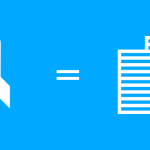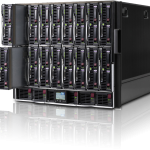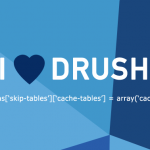These days, when the server performance achieves absolutely incredible levels, the real performance lives where the client-side optimisation and caching is. NGINX is a commonly used as web content caches, ranging from individual websites to some of the largest content delivery networks (CDNs) in the world, such as MaxCDN and CloudFlare. According to The Benefits of Microcaching with NGINX, a WordPress website could be sped up around 400x times. Nginx microcaching setup To set up your caches for (much) faster website loading and get a good SEO ranking, RedyHost offers a number of ways to easy configure efficient website caching. We use Nginx for this. […]
Continue readingCategory Archives: How to
How to add custom network route in Citrix XenServer 6.1+
To add a custom route in Citrix XenServer 6.1 or higher, execute the following commands: network interface must exist prior running these commands. Refer to XenServer configuration guide to create and configure network interface(s). find network UUID: xe network-list xe network-param-set uuid= other-config:static-routes=10.0.0.0/24/10.1.2.2 (in our case we have our XenServer with xenbr1 interface configured with IP 10.1.2.3 and we need it to access network 10.0.0.0/24 via custom route 10.1.2.2) run “route -n” to confirm our custom route is in the list reboot XenServer to confirm the static route is persistent after reboot (run “route -n” again and confirm the […]
Continue readingMaking Drupal 8 fly
– We posted a more recent blog article with more benchmarking and results analysis DRUPAL 7.41 VS DRUPAL 8. RC2 BENCHMARKING ANALYSIS – More Drupal 8 Stress Test benchmarks available. Drupal 8 RC2 is out and the official release of Drupal 8 is not too far away. As a hosting company that is officially supporting Drupal and offering Drupal optimised hosting, we thought it would be a must to get ready for the Drupal 8 launch in advance. Having enough time to do good fine tuning + independent performance testing of our Drupal 8 VPS offering, along with getting some numbers to estimate the performance and to […]
Continue readingHow to Protect your Server Against the Shellshock Bash Vulnerability
On September 24, 2014, a GNU Bash vulnerability, referred to as Shellshock or the “Bash Bug”, was disclosed. In short, the vulnerability allows remote attackers to execute arbitrary code given certain conditions, by passing strings of code following environment variable assignments. Because of Bash’s ubiquitous status amongst Linux, BSD, and Mac OS X distributions, many computers are vulnerable to Shellshock; all unpatched Bash versions between 1.14 through 4.3 (i.e. all releases until now) are at risk. The Shellshock vulnerability can be exploited on systems that are running Services or applications that allow unauthorised remote users to assign Bash environment variables. […]
Continue readingUse Vagrant to provision production stack in any Cloud VPS
Vagrant has been widely adopted by many and has the variety of usages to streamline development and production server environments. In this article, we show how to use Vagrant to provision production or development environment to our SSD Cloud VPS. Before you begin, make sure you have the latest version of Vagrant installed running SSD Cloud VPS server working SSH access (username and password or SSH key available). 1. Setting up your local environment Installing managed servers plugin for vagrant from https://github.com/tknerr/vagrant-managed-servers. In the terminal, execute: vagrant plugin install vagrant-managed-servers 2. Configure your preferred environment in puphpet Make note of your operating system […]
Continue readingAnnouncing MongoDB support
We are pleased to announce MongoDB support in our cPanel servers environment. Whether you use Drupal 7 or Drupal 8, a MongoDB module offers you ability to store different types of Drupal data in MongoDB Save your Drupal 7 or Drupal 8 cache, fields data and watchdog in MongoDB, the simple high performance key => value database Download MongoDB module for your version of Drupal https://www.drupal.org/project/mongodb Activate the ‘mongo’ PHP module via cPanel in 2 easy steps: 1. Login to cPanel and open “Select PHP Version” page 2. Make sure ‘mongo’ PHP module is selected and ‘Save’ the configuration
Continue reading3 steps to activate cPanel login notifications
If you never wondered about who is logging in into your cPanel account, then you probably should be. cPanel account is the underlying hosting management for your website, FTP and email accounts and it is as secure as your cPanel password is. Consider receiving cPanel login notifications as the top priority if your business or brand relies on your website a bit. After all, you do not access cPanel too often (hopefully), so that these notifications will not be annoying you too much. cPanel team has FINALLY added support for login notifications and all our cPanel server now support it. […]
Continue readingHow to install Drush in cPanel with CloudLinux and CageFS
RedyHost customers who run Drupal websites in a cPanel hosting, ask us about getting Drush available in cPanel
Continue reading






